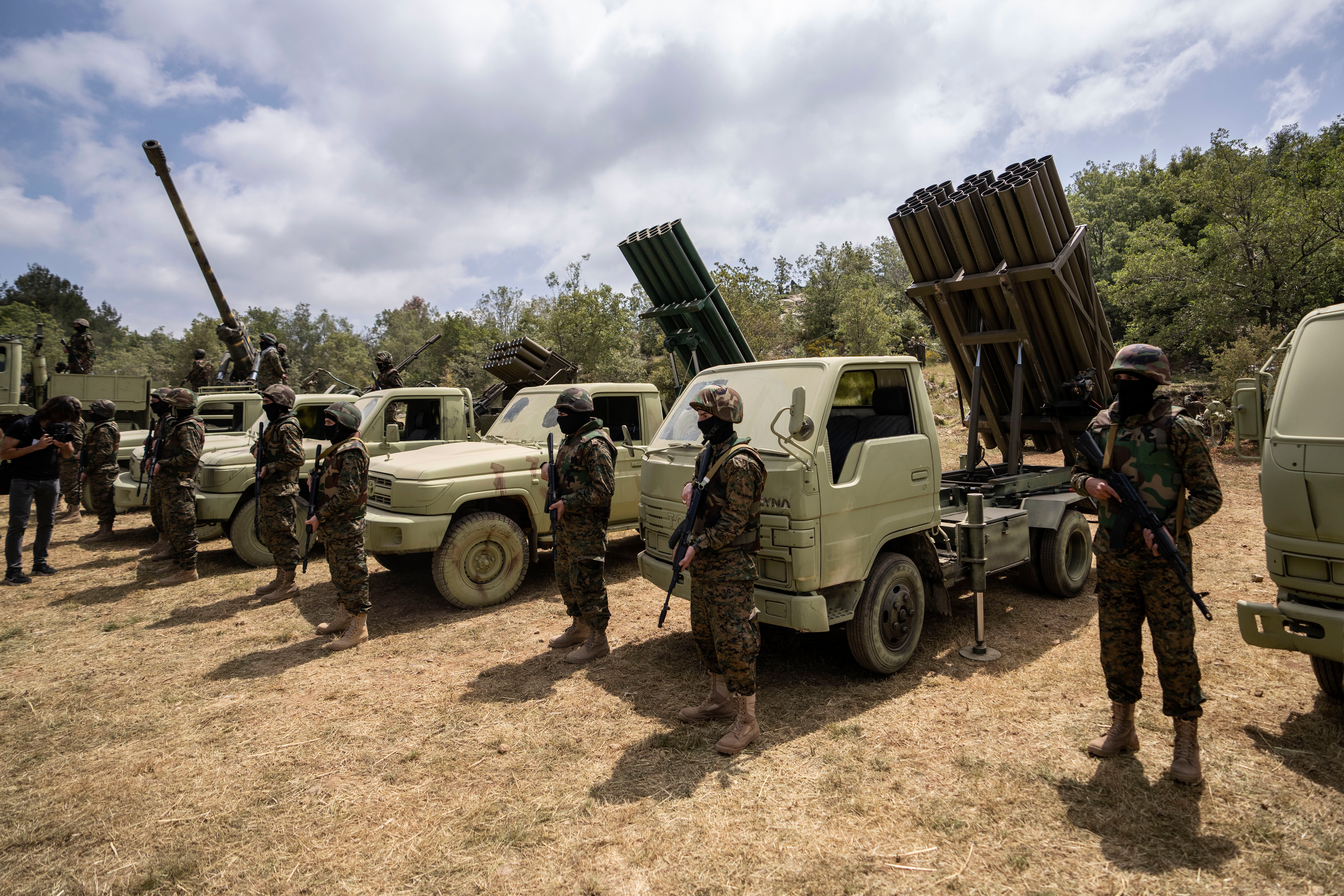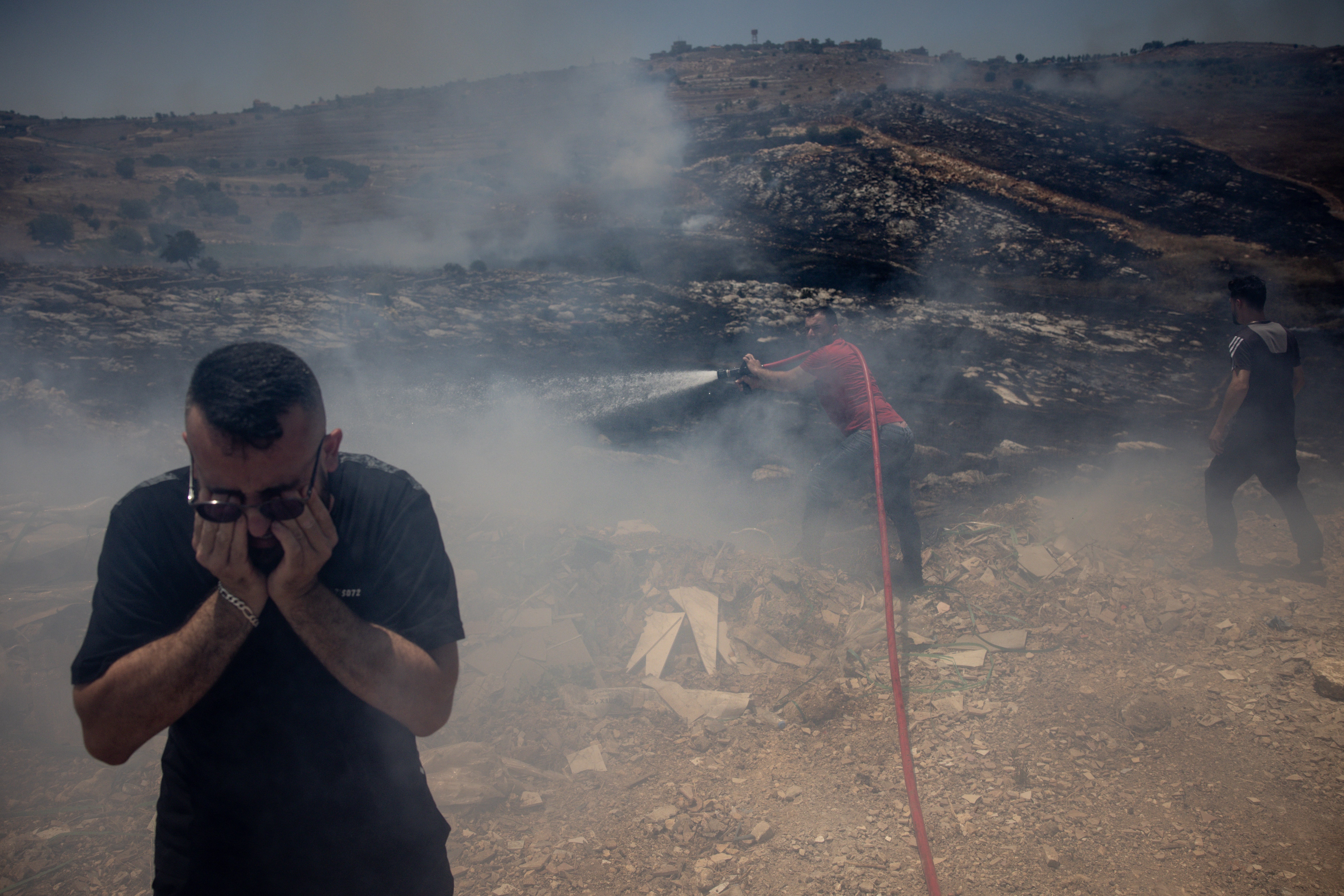Israel warns it could send Lebanon ‘back to the Stone Age’ as fears grow over war with Hezbollah
Israeli defence minister Yoav Gallant says the country does not want to go to war with the militant group – but will do so if pushed

Your support helps us to tell the story
From reproductive rights to climate change to Big Tech, The Independent is on the ground when the story is developing. Whether it's investigating the financials of Elon Musk's pro-Trump PAC or producing our latest documentary, 'The A Word', which shines a light on the American women fighting for reproductive rights, we know how important it is to parse out the facts from the messaging.
At such a critical moment in US history, we need reporters on the ground. Your donation allows us to keep sending journalists to speak to both sides of the story.
The Independent is trusted by Americans across the entire political spectrum. And unlike many other quality news outlets, we choose not to lock Americans out of our reporting and analysis with paywalls. We believe quality journalism should be available to everyone, paid for by those who can afford it.
Your support makes all the difference.Israel has warned it could send Lebanon “back to the Stone Age” as it prepares to transfer thousands of troops from war-torn Gaza to its northern border – with fears growing of a war with Hezbollah.
During a visit to Washington to meet US officials, defence minister Yoav Gallant said Israel was keen to avoid another war with the Lebanon-based, Iran-backed Hezbollah – after weeks of trading fire with increasing frequency – but added that it was within the country’s power to destroy its neighbour if it needed to.
“We don’t want to get into a war, because it’s not good for Israel,” Mr Gallant said. “We have the ability to take Lebanon back to the Stone Age, but we don’t want to do it.”
His comments came just two days after Benny Gantz – the former Israeli army chief who, until his resignation earlier this month, was one of three members of the war cabinet that was convened to oversee the war in Gaza – made a similar threat.
“We can plunge Lebanon completely into the dark, and take apart Hezbollah’s power in days,” Mr Gantz said on Tuesday during a conference in Herzliya, a city just north of Tel Aviv.
The previous day, Benjamin Netanyahu had said that the Israeli military would soon look to “transfer some forces north” from Gaza to shore up the border with Lebanon, as the most intensive phase of its Gaza offensive comes to an end.
In his first interview with Israeli media since the Hamas attack inside Israel on 7 October, Mr Netanyahu said the transfer was “first and foremost for defensive purposes”, but the situation on Israel’s northern border remains unstable.


The Hamas attack killed around 1,200 people, with another 250 taken hostage. Israel’s ensuing offensive against Hamas, the organisation that runs the Gaza Strip, has killed more than 37,700 Palestinians, according to Gaza’s health ministry.
Across Israel’s northern border in Lebanon, where Hamas-allied Hezbollah has vowed to fight Israel until it ends its war in Gaza, at least 481 people, including 94 civilians, have died since October, according to AFP. On the Israeli side, at least 15 soldiers and 11 civilians have died, according to Israel.
The comments issued by the three politicians were a rare sign of unity between the former members of Israel’s now-dissolved war cabinet, which included Mr Gallant, Mr Gantz, and Israeli prime minister Benjamin Netanyahu as well as three observing members.
Mr Gantz quit alongside secondary member Gadi Eisenkot over Mr Netanyahu’s failure to put forward a long-term plan for the war in Gaza.
Speaking to reporters after meeting with senior US officials in Washington, Mr Gallant said he had discussed with his US counterparts Israel’s “day after” proposals for the governance of post-war Gaza, and that this would involve local Palestinians, regional partners and the US, though he added that it would be “a long and complex process”.
Humanitarian aid organisations have warned that a shortage of medical and food supplies in Gaza could kill countless more Palestinians while border crossings remain shut.

Twenty-one critically ill children were set to leave Gaza on Thursday in the first medical evacuation since the territory’s sole travel crossing was shut down in early May, Palestinian officials said.
Family members bid a tearful goodbye to the children as they and their escorts left the Nasser Hospital in the southern Gaza town of Khan Younis, bound for the Kerem Shalom cargo crossing into Israel.
But speaking at a press conference at Nasser Hospital, Dr Mohammed Zaqout, the head of Gaza’s hospitals, said that more than 25,000 patients in Gaza require treatment abroad, including some 980 children with cancer, a quarter of whom need “urgent and immediate evacuation”.
He described the evacuation of 21 children as a “drop in the ocean”, adding that the complicated route through Kerem Shalom and into Egypt cannot serve as an alternative to the Rafah crossing, a much larger route further west.
Join our commenting forum
Join thought-provoking conversations, follow other Independent readers and see their replies
Comments